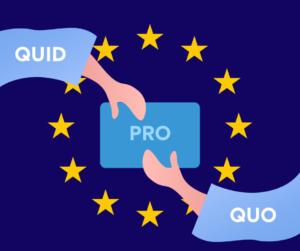Headquarters: Svetog Nauma 7, 11000
Office address: Đorđa Vajferta 13, 11000
Phone:: +381 11 4529 323

The silence breakers of the Me Too movement became TIME’s person of the year for 2017. Women who decided to speak up about sexual harassment were recognised as the most significant persons of the past year. The hashtag #metoo initially used by Alisa Milano spread virally in October 2017 demonstrating the widespread prevalence of sexual assault and harassment, especially in the workplace. Very quickly it incentivised other women to stand up and talk about their painful experiences that go well beyond Hollywood and the film industry.
In a broader sense, the #metoo movement can also be seen as an integral part of an already present public discourse that attempts to popularise feminism and promote the fight for gender equality. From Harry Potter star Emma Watson who launched the HeForShe campaign in 2014 to Beyonce and her famous “FEMINIST” slogan at the concert in 2016, feminism has become a part of popular culture.
In parallel to changes in public discourse, many policy initiatives have been introduced in order to acknowledge and address persistent gender inequality, whose root cause is the uneven distribution of power between women and men. In the EU for example, issues such as the gender pay gap or the insufficient representation of women in politics and decision-making have been a subject of numerous EU and/or national regulations. Moreover, new areas, such as the position of women in research and academia, have been put in focus and there is more and more data that reveal the disadvantaged position of women in our societies.
However, even though we should celebrate and encourage every initiative that empowers women[1] and every policy proposal aiming to rectify our unequal position in any given field, at the same time we must not neglect or downplay the importance of many backward tendencies we are witnessing.
Notably, the rise of populism has brought new challenges even in countries that are pioneers in gender equality. Sweden, for instance, is experiencing the rise of Sweden Democrats which were voted into the Swedish parliament with a programme based on conservative family policies. Next, despite the fact that every third woman experiences physical and/or sexual violence in the EU, attempts to sign and ratify the Istanbul convention in countries like Bulgaria or Slovakia have been labelled as a promotion of “gender ideology”. The ageing population along with low birth rates and massive out-migration in many countries – like the Balkan countries – are causing a decrease in population. It puts women’s reproductive rights in danger due to the rhetoric that singles out abortion as the most decisive factor for low fertility rates.
Furthermore, women are still discriminated against at the labour market, they are less active, less paid and still face a career ladder. While there is a tendency in many European countries for women to be more educated than men, we still have gender bias in education with girls being underrepresented in STEM education, due to the “boys are better at math” stereotype. Ensuing, globally influential media like Forbes are still comfortable with publishing articles such as “The World’s 20 Most Powerful Moms” ?! It is 2018 and the main news a few months ago was that the Prime Minister of New Zealand is the first ever female prime minister to go on maternity leave. Designed to be positive news, it is impossible not to provoke anger. This year there are no women on the Forbes’ list of the world’s 100 highest-paid athletes – Serena Williams, the only woman who was on the list last year gave birth in the meantime. These are just a few examples of consistent and pervasive discrimination of women in many fields.
In addition, more often than not, initiatives like #metoo tackle the position of white, heterosexual, well-educated women with urban lives.[2] As the examples of the widely acclaimed book Lean in, or equally popular Feminist Fight Club show contemporary feminism or “fav wave feminism” is designed to simplify the complexity of the disadvantaged position of women reducing it to the need of overcoming our internal barriers instead of talking about structural obstacles.
Thus, even though we should celebrate our small victories, we should not fall into the trap of comforting ourselves that gender equality is within our hands’ reach. First, as much as there is a pro-feminist change in public discourse, we are simultaneously facing the rise of conservative forces that are gaining prominence on the basis of advocating more traditional roles for women. Second, gender stereotypes are so dominant and factors affecting women so intertwined that in many areas changes have been very slow, despite the introduction of progressive policies. And finally, as someone put it, the question is can we lean in or the table must be broken. In other words, can the current wrecked system be repaired to benefit both men and women, black and white, rich and poor, or do we need a new vision of a better world?
It is 2018, but feminism, as a notion that women and men are equal, is still a revolutionary idea.
[1] Although some may disagree: https://themuse.jezebel.com/a-frank-talk-with-jessa-crispin-about-why-modern-day-fe-1792367458
[2] p.s. If you are reading this, most probably you are privileged too.
Image source: https://www.canadianwomen.org